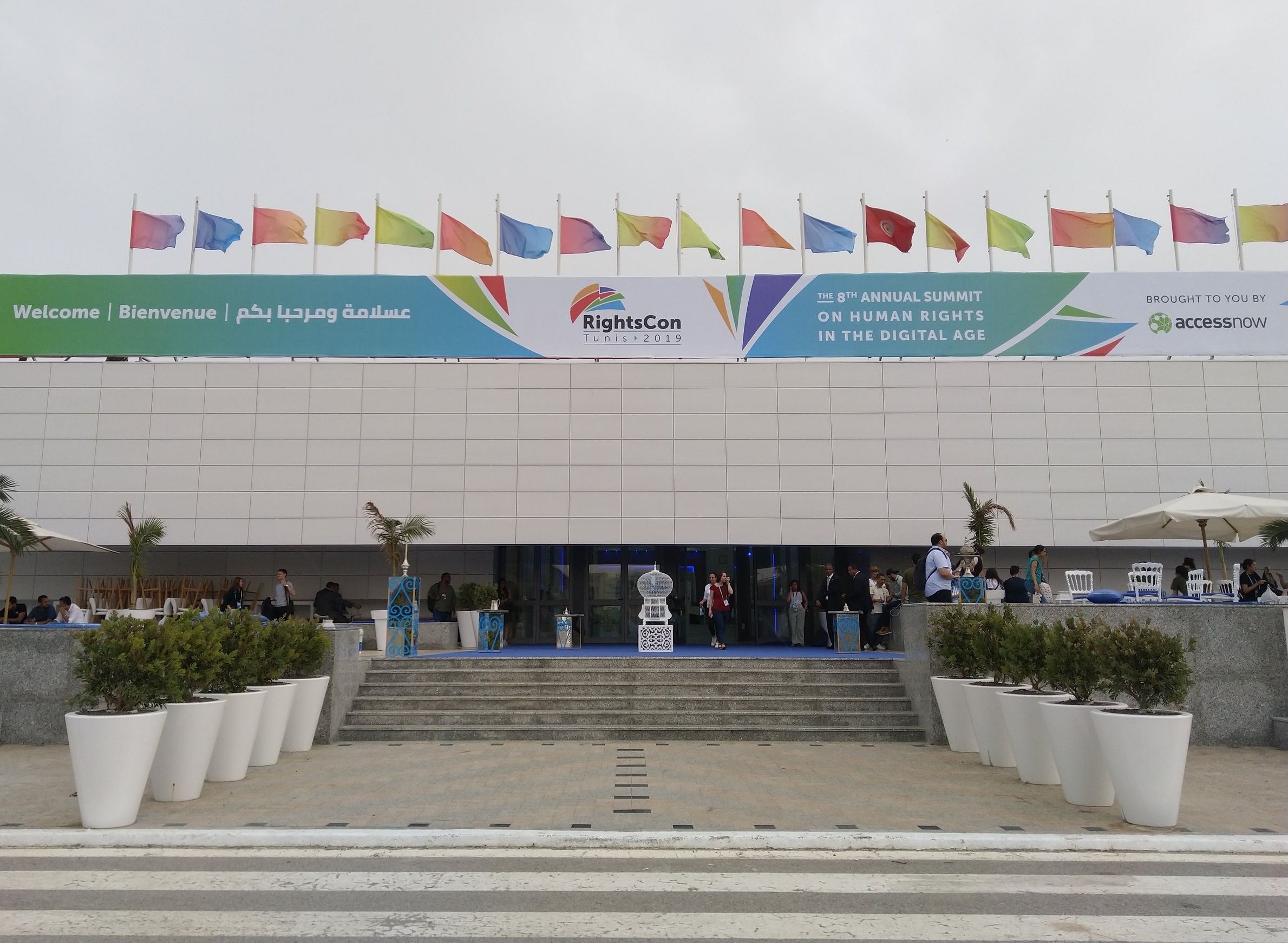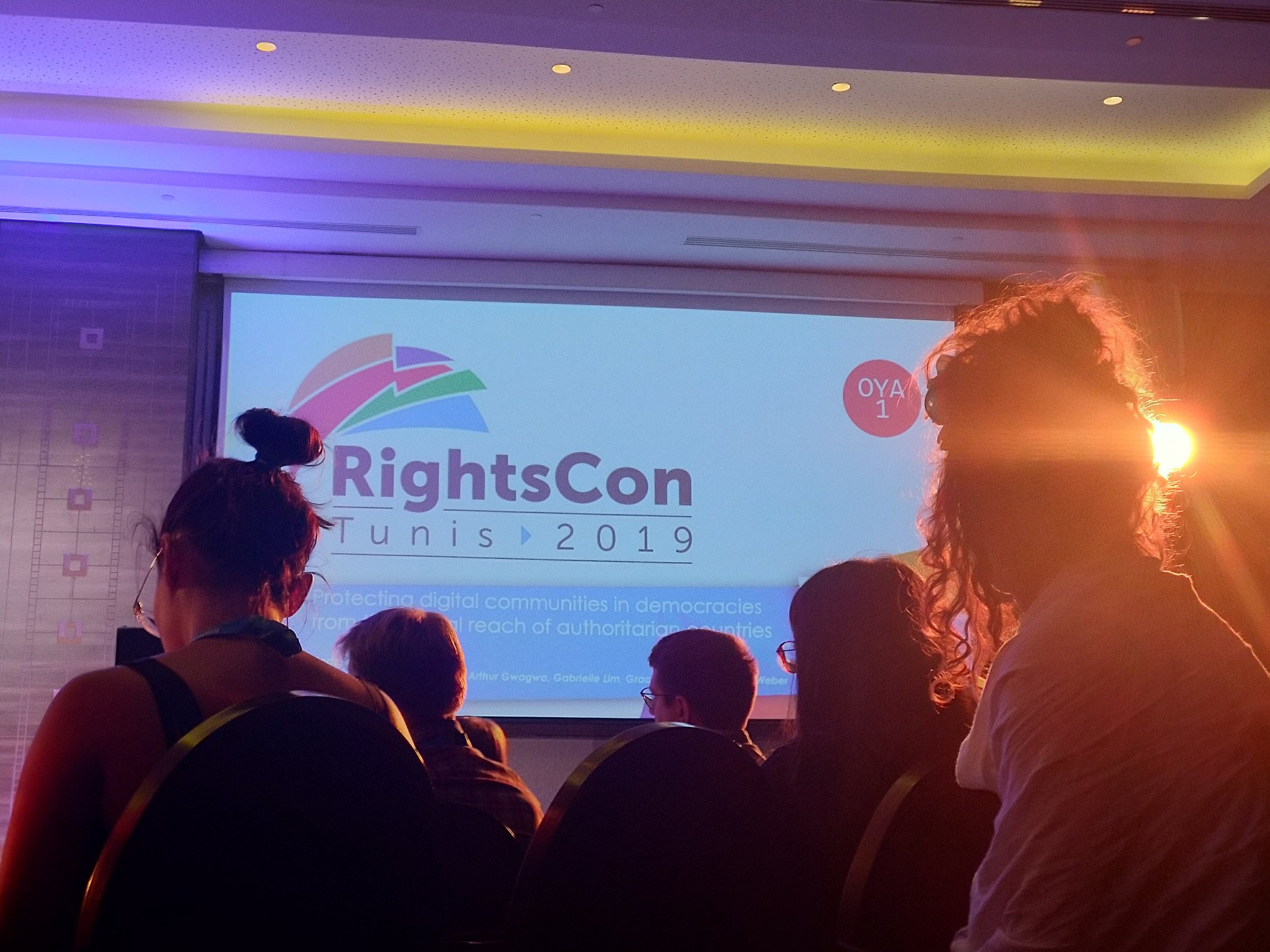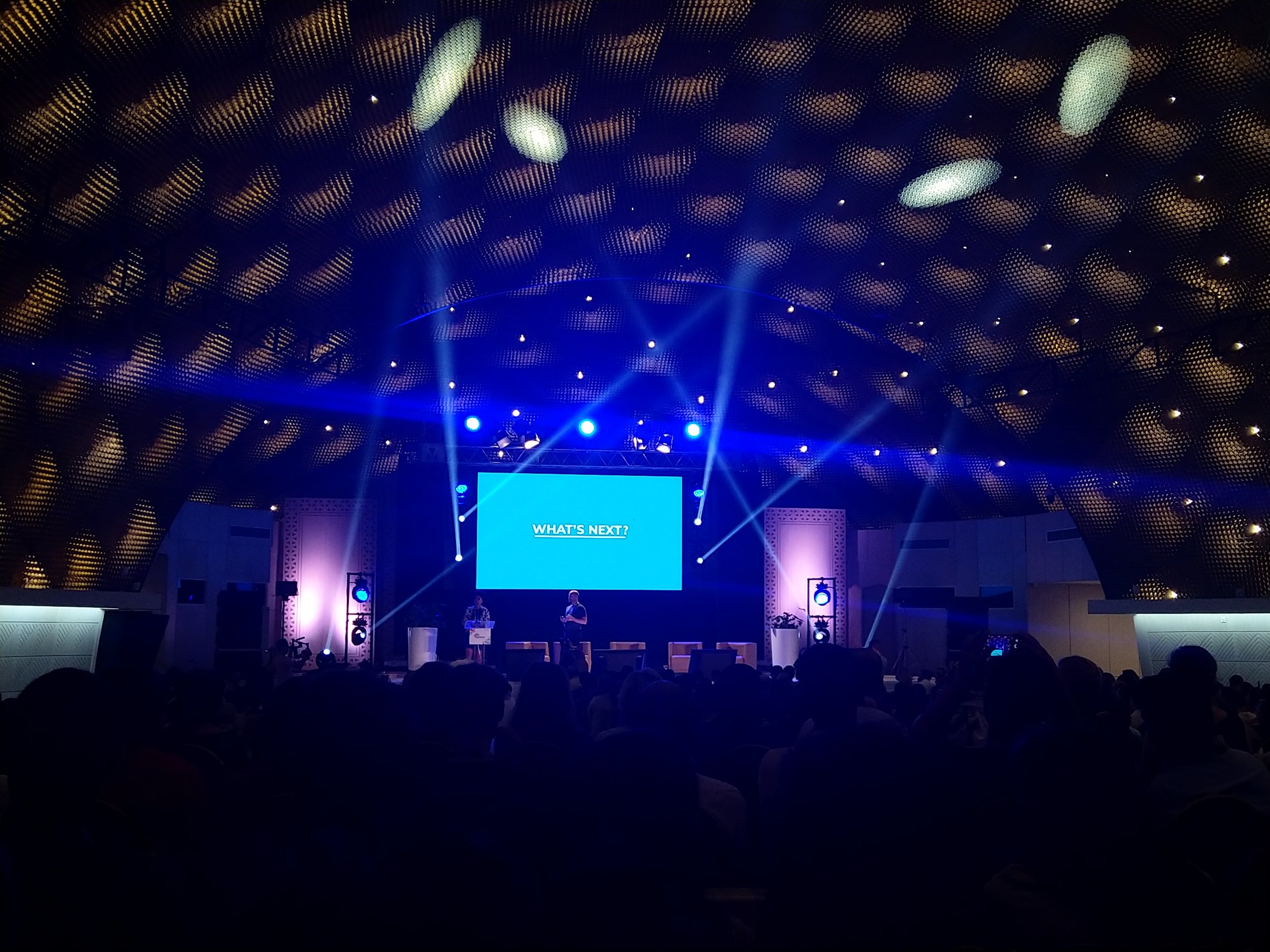How do human rights look in an increasingly digital world? What challenges and opportunities do technology pose for human rights defenders? How do we ensure our accrued human rights online as well as offline? These are some of the questions human rights advocates around the world are grappling with.
RightsCon – defending and extending digital rights
RightsCon is a yearly summit series on human rights in a digital age, organized by AccessNow. The purpose of this event is to bring together multi-stakeholders in the field of human rights and technology to “connect, strategize, and shape the future”.[1] This year’s RightsCon in Tunis gathered nearly 3,000 participants, including business leaders, policy makers, general counsels, government representatives, technologists, and human rights defenders. There were around 30 governments and over 150 tech companies present. The RightsCon is more than just an annual conference and meeting place; it is a movement that connects and mobilizes a global community between events to collaborate on the most pressing issues at the intersection of human rights and technology. The event is a cornerstone in building a global ‘RightsCon community’.
The RightsCon started out as a human rights event in dialogue with businesses in Silicon Valley and has steadily evolved into a community that not only sees human rights in relation to technology, but one that promotes digital rights as human rights. It is built on multistakeholderism and diversity, which shone through as the event gathered participants from over 100 different countries, most of whom were female and many identifying with a non-binary identity. AccessNow, the main organizer, is an international non-governmental organization that aims to defend and extend the digital rights of users at risk, such as LGBTQI communities and indigenous groups, all around the world. The RightsCon series has as part of this strategy facilitated a coalition of partners who launched the #KeepItOn campaign against Internet shutdowns at RightsCon Silicon Valley 2016.
The concept of digital rights & digital tools of repression
Digital rights entails that the human rights laid down in international law should be protected, whether exercised in person, through technologies of today, or through technologies that will be invented in the future. In other words, human rights should count online as well as off.
The protection of human rights in a digital era is challenging in all regime types, democracies and autocracies alike. Protection of digital rights can be a challenging balancing act for any government, especially at the nexus between national security, privacy and human rights. The program at RightsCon Tunis, which is highly community-driven, reflects this; the issues discussed spanned surveillance technologies, content moderation and artistic freedom online, data protection, press freedom and fighting online hate speech.
We learn more and more about how authoritarian regimes are using digital tools to broaden the repressive toolkit, mainly by two forms of control; the restriction or disruption of the Internet and digital surveillance. Crucially, Internet shutdowns have become a particularly popular tool, especially for autocracies during times of elections.
There is also increasing apprehension about the challenges that digital technologies pose to democratic politics. Especially the rights to privacy and freedom of expression is a constant challenge, both in the relation between governments and businesses and between governments and their citizen. The recent court ruling on President Trump’s blocking of critics on Twitter is just one example of this.
Fighting for digital assembly rights
The digital space is not a neutral space. A particular focus for civil society actors during RightsCon 2019 was how to enable digital civic space in political contexts where civic space is already constrained. Governments are increasingly learning how to regulate, control and use these previously unregulated spaces. The rights-based answer from human rights activists and advocates are, however, that when governments disrupt the Internet, introduce social media tax, or impose restrictions on private blogs, they are grossly violating individual rights to freedom of expression and access to information. “We must recognize the great opportunities that Internet provides us to exercise our democratic rights, but we also need to understand how these spaces can be manipulated and hijacked by others,” proclaimed UNSR Clément Voule during a session on ‘enabling digital civic space’ in Tunis.
Many sessions were concerned with how human rights activists could resist and respond to shrinking space for dissenting voices, both on the streets, but in particular online. Several sessions raised the issue of government’s increased use of Internet shutdown, introduction of laws restraining online civic space, with cybercrimes laws, antiterrorism laws, surveillance laws, media and anti-”fake news” laws and demonstrations laws. The consequences of these laws are in line with the conclusions of a brand new report by the UN Special Rapporteur on freedom of peaceful assembly and association.
The UN Special Rapporteur writes that “[t]he digital age has opened new space for the enjoyment of the rights to freedom of peaceful assembly and of association. There are numerous examples across the globe which demonstrate the power of digital technology in the hands of people looking to come together to advance democracy, peace and development. However, the digital revolution has also brought a range of new risks and threats to these fundamental rights.”
This report on ‘the exercise of the rights to freedom of peaceful assembly and of association in the digital age’ finds a growing trend of restrictions on the rights to freedom of peaceful assembly and of association online, such as criminalization of online activities, arbitrary blocking of online content, and government-sponsored trolling and cyberattacks – in particular targeting groups at risk, such as women and lesbian, gay, bisexual, transgender and intersex persons (see pages 10–12).
Going forward: Human rights, online and off
In the aftermath of the RightsCon 2019, UN Special Rapporteurs on freedom of opinion and expression, the situation of human rights defenders, and freedom of peaceful assembly and association, Michel Forst, David Kaye, and Clément Voule, released an official statement calling for the protection of human rights in digital spaces. AccessNow also released the RightsCon Learnings, a community statement that captures the richness and diversity of the debate in Tunis. Going forward, digital rights activists and their supporters will continue to fight for the protection of human rights online as well as off.
This blog is written by Lisa-Marie Måseidvåg Selvik. The text is based on her PhD work on digital rights activists and attendance at RightsCon 2019 in Tunis 11-14 June, with participant observation and an interview with the RightsCon Program and Community Manager.
[1] Formulation collected from an e-mail sent out to the RightsCon community before the event.




